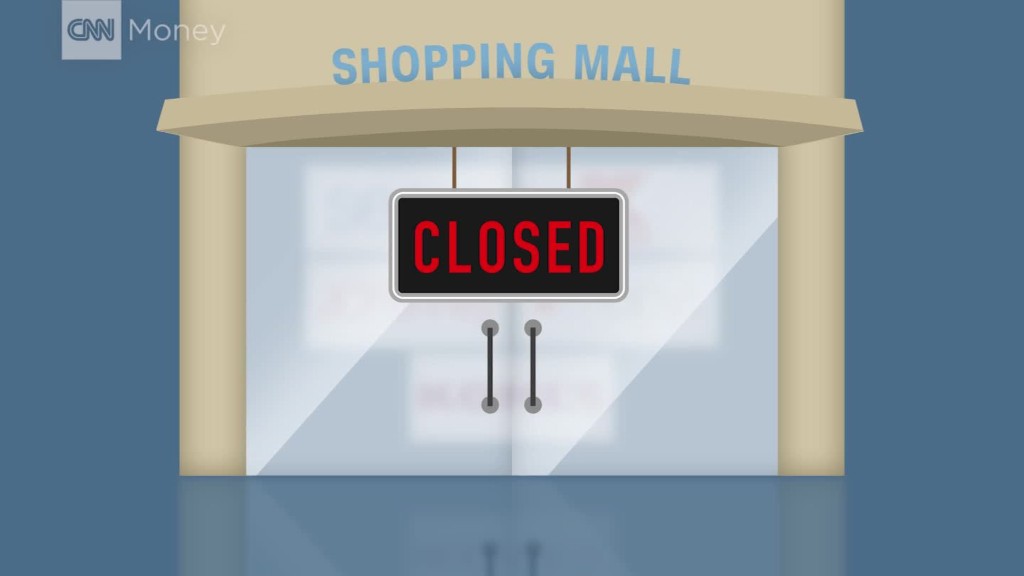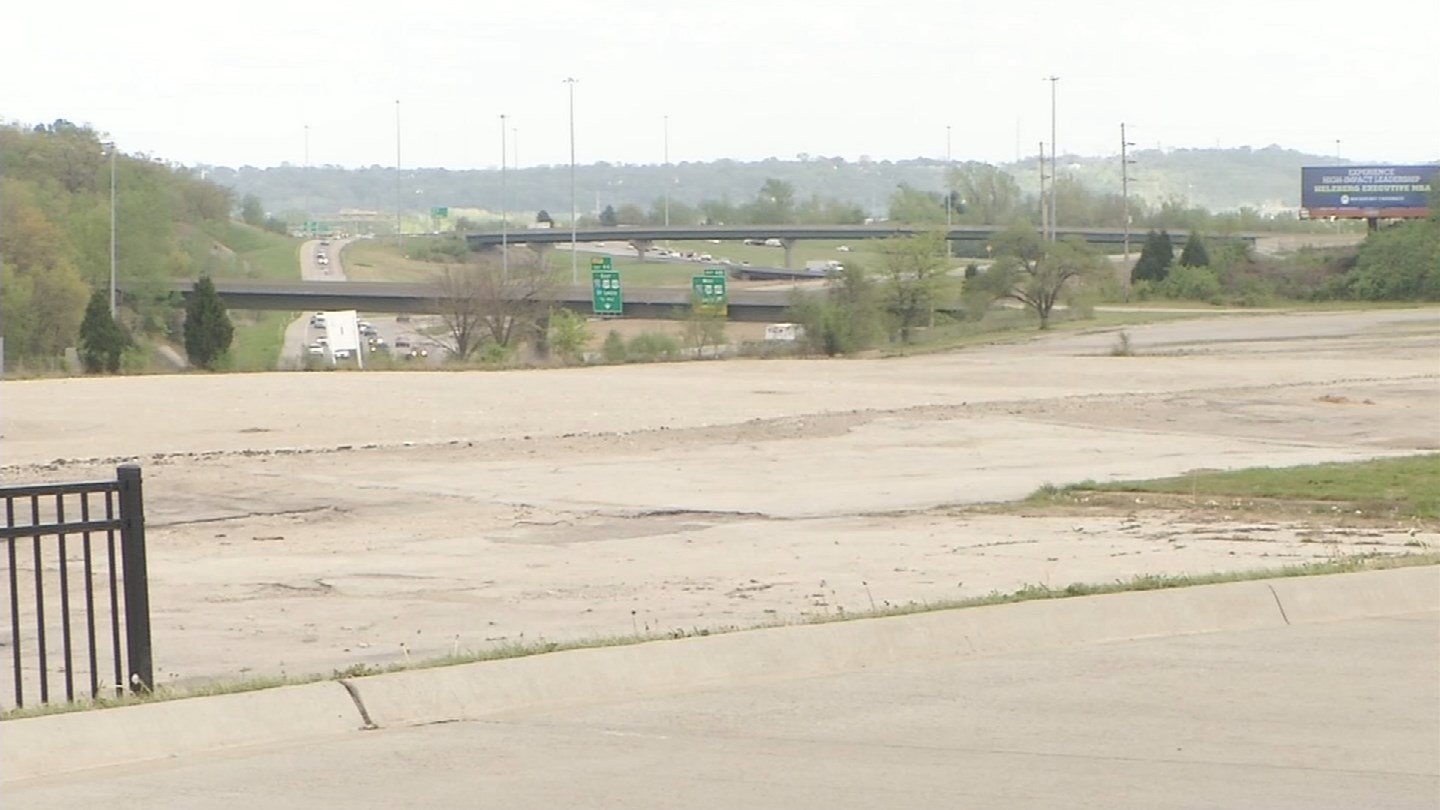It was an interesting visit. I have been back to Kansas City a few times since I left school. My most recent visit was in 2006, or about 12 years ago, when I was leading a youth mission trip back to that area. Some things had not changed at all. Other things have changed a lot. New neighborhoods and establishments have been born. Still other establishments have ceased to exist as I knew them. As I observed the changes I began to observe that there was a lesson to be learned in all this.
When we arrived in Kansas City, I began to research a way to visit the "Great Mall of the Great Plains". It was one of the biggest malls in the country when it was built, which was while I lived in the area in 1997. Turns out, the mall was closed and has been demolished.

Earlier that day, I had taken I-635 past where I used to live. I looked out where the Indian Springs Mall was, which was a mall that was struggling when I lived there, supposedly because of the difficulties of dealing with urban youth that wanted to loiter there. Here is a picture of that mall today:

As you can see both malls, one in the suburbs and one in the city, have ceased to exist.
I currently live in a small midwestern city where we have a mall. In the last year, the mall has lost three of its anchor stores. Because of the decline of these anchor stores, several other stores in the mall have closed as well. This has been a disappointment for many folks in our community. And so, the stores, the mall, and some people blame their customer's internet shopping habits, and decry the citizens unwillingness to "shop local".
At the same time, there is a subtle effort to seek to "save the mall". People wonder how we can get new stores in, wonder if we can help them survive, so that we can keep this mall thing going. My question is, "Is it a good thing that the mall survives?" and "Are malls a thing of the past?" You see, I think it might a good thing if the mall is demolished here, and the business community begins to reimagine what consumers need today in North Platte instead of depending on a business structure and model that has been declining in relevancy for over 20 years. The mall has not always been the center of shopping experiences for consumers. Before the mall developed, people shopped in thriving downtown storefronts. Before that, if a community was not developed, they shopped from a Sears catalogue, which is not all that unlike ordering from Amazon.
Why is this important to a Baptist pastor in the middle of Western Nebraska? Becuase I think we are as tied to irrelevant methods of doing church as commercial real estate investors are tied to irrelevant ways of organizing businesses to sell their goods. Furthermore, I think many believers often conflate methods of doing church and living their faith with the real message of Scripture.
So, then, how do we lead communities of believers so that they are not investing themselves in forms and methods of doing church that will lead them to irrelevance and closure? Here are a few of my thoughts. I would love to hear yours.
1. We need to work hard not to conflate "church" with a brick and mortar structure
A church congregation is a group of people locally covenanted together to fulfill God's mission in cooperation with one another in a particular locality at a particular time. Churches are not buildings. They are communities of believers. Yet, much of our congregation's emotional reserve and resources are invested in caring for and maintaining a building that is occupied for a limited time each week. If your church has a building, it needs to make sure the building does not define them, control them, or guide their ministry. When the building gets the devotion and care, our devotion for the Lord is lessened and our care for other people is missed.
2. We need to work hard not conflate discipleship with service on committees
A person is not more mature spiritually because they serve on the Executive Board of a congregation. Participation on the property care committee does not necessarily mean a greater depth of faith. No where in the bible does it say that followers of Jesus will grow closer to Jesus by serving as a Women's Ministries officer. As a matter of fact, frequent attendance at church meetings can be detrimental to one's spiritual well being.
3. We need to realize that our commitment to managing church business with more and more meetings is running more and more people out the door
People are not eager to commit to institutions, especially when their primary goal is their own viability and longevity. When we welcome people into fellowship, and then try and encourage them to be involved in a number of groups that debate inessential issues for extended periods of time, we run those folks out of church that love Jesus, but don't feel attached to institutional maintenance. And, people with this love for Jesus and detachment from insitutional trappings is LEGION. Therefore, we need to focus more on gatherings that meetings. Our committee work should not be as concerned with procedural matters as we are with equipping, training, and planning for effective person to person ministry. There will always need to be folks managing adminstrative details, but this can be done by a cadre of committed leaders with gifts in such matters, not gobs of committees mired in mediocre leadership.
5. We need to understand that efforts on making our churches bigger is not making said churches healthier, more viable, or more effective at reaching people with the gospel.
Malls were a part of the "bigger is better" model of the consumer experience. People have slowly rejecting the mall experience as desirable. Larger is not necessarily better.
A similar dynamic will soon play out in churches. I know of larger churches that are unhealthy, and smaller churches that have a lot to offer. Four congregations of 100 are more effective at reaching the unchurched and caring for one another than one church of 400, yet we seem to place a higher value on the church of 400.
What are your thoughts on this comparison. What else would you add? As you can tell from reading this, I am a still struggling to bring together this comparison of the mall and the church. I believe that there is a lot to the comparison, but I am still hoping to find more words to it.


